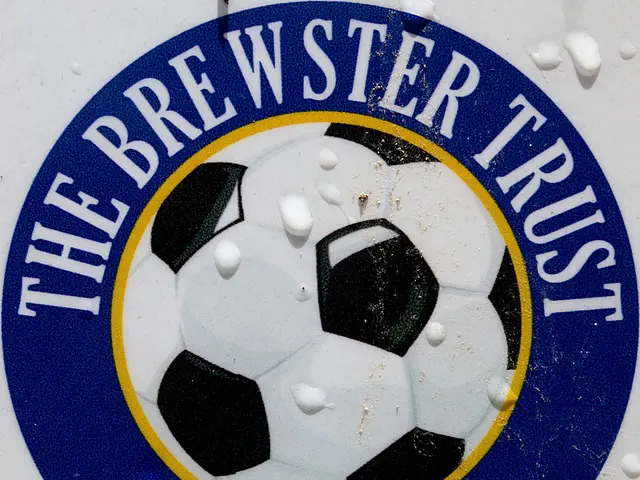Strategies and Goals for Managing Depression: Approaches, Aims, and Healing Process
Take a gander at this refreshed take on depression treatment, minus the gloom and doom. We're diving into the heart of it: tackling depression with a toolkit of tested strategies.
All-Star Depression Treatment Strategy
An effective approach to battling depression often rounds up several essential components, each contributing to the victory over this complex beast. These elements work in harmony to target depression from every angle and propose a holistic approach to healing the mind.
- Psychological Warfare: Various forms of therapy help individuals to identify and dismantle negative thought patterns, develop coping strategies, and strengthen relationships.
- Medication Marathon: Pills can be an essential part of the treatment plan for many folks, helping to alleviate symptoms and correct unbalanced brain chemistry.
- Lifestyle Makeover: Overhauling everyday habits and routines can greatly impact depression symptoms. This includes regular exercise, a balanced diet, and solid sleep hygiene.
- Tight-knit Social Squad: Building and nurturing strong bonds with others is crucial for individuals battling depression. Emotional support from family, friends, and groups helps keep spirits up during the journey to recovery.
Gear Up with Goals
Setting clear-cut objectives serves as the backbone of any successful depression treatment strategy. Goals provide direction, motivation, and a sense of progress throughout the recovery process.
When establishing treatment plan goals for depression, consider both short-term and long-term aspirations. Short-term objectives focus on immediate symptom relief and reinforcement techniques, while long-term goals touch upon broader life improvements and sustainable recovery.
To maximize the power of long-term goals for depression, dive into our exhaustive guide on long-term goals for depression.
Want to learn how to set effective long-term goals using the SMART method? Don't worry, we've got an easy-to- digest guide for that too.
Common treatment plan goals for depression may include:
- Reducing the frequency and intensity of depressive episodes
- Improving general functioning and involvement in daily activities
- Bolstering social connections and social support systems
- Developing effective coping strategies for stress and negative thoughts
- Establishing better sleep patterns and overall physical health
Tailor these goals to fit the unique needs and circumstances of each individual. A mental health expert can help adjust goals to best align with each person's overall treatment plan.
Psychological Interventions: Battle Plan for the Mind
Therapy reigns supreme in depression treatment plans. Several evidence-based tactics have demonstrated success in treating depression:
- Cognitive Behavioral Therapy: One of the most commonly used and researched therapies for depression, CBT hones in on identifying and changing negative thought patterns and behaviors that contribute to depression.
- Interpersonal Therapy: IPT targets interpersonal relationships and social functioning, helping individuals address issues such as grief, role transitions, and relationship conflicts that may be contributing to their depression.
- Mindfulness-Based Cognitive Therapy: MBCT fuses elements of CBT with mindfulness techniques and assists individuals in becoming more aware of their thoughts and feelings, helping prevent relapse.
- Psychodynamic Therapy: Delving into past experiences and unconscious thoughts can provide insight into the challenges behind current behaviors and emotions, which can aid those battling long-standing depression or those with unresolved childhood issues.
Medication Management: Ammunition for the Battlefield
For many individuals dealing with depression, medication can be a potent weapon in their arsenal. Antidepressants adjust brain chemistry and alleviate symptoms, lifting the fog of depression. There are several varieties of antidepressants, including Selective Serotonin Reuptake Inhibitors (SSRIs), Serotonin-Norepinephrine Reuptake Inhibitors (SNRIs), Tricyclic Antidepressants (TCAs), Monoamine Oxidase Inhibitors (MAOIs), and Atypical Antidepressants.
Selecting the ideal medication entails careful consideration of an individual's symptoms, medical history, and potential side effects. A psychiatrist or other qualified healthcare provider will work hand in hand with the patient to find the ideal medication and treatment plan.
Regular progress checks and monitoring side effects are vital when taking antidepressants. It's important to note that medication generally works best when combined with psychotherapy and other treatment strategies.
Lifestyle Transformations: Diet, Exercise, and Rest
Incorporating healthy lifestyle adjustments and self-care routines can significantly bolster the effectiveness of depression treatment. Focusing on crucial areas such as:
- Exercise: Engaging in regular physical activity can boost mood and affect the same brain regions as medications for some people with mild to moderate depression. Aim for at least 30 minutes of moderate exercise most days of the week.
- Nutrition: Maintaining a balanced diet high in essential nutrients can support mental health and general well-being. Focus on carbohydrates, proteins, fruits, vegetables, and healthy fats.
- Sleep: Developing good sleep habits is key to managing depression. Strive for seven to nine hours of sleep each night and keep a consistent sleep schedule.
- Stress Reduction: Practice stress-reducing activities, such as meditation, deep breathing exercises, or yoga, to promote relaxation and mental clarity.
The Power of a Comprehensive Approach
An all-encompassing depression treatment plan must tackle every aspect of life impacted by depression. This broad view ensures that treatment focuses not only on alleviating symptoms but also on improving overall quality of life and promoting long-lasting recovery.
Regular assessments and adjustments of the treatment plan are essential for maintaining progress and addressing any new challenges that arise. It's crucial to work closely with mental health professionals to evaluate the effectiveness of various approaches and adapt the treatment plan accordingly.
Help for Students: Accommodations and Resources
For students grappling with depression, it might be advantageous to explore options for academic accommodations. Our guide on 504 plans for depression provides valuable information for students and parents navigating the educational system while addressing depression.
May the journey to recovery be swift and fruitful. With the right tools, individuals can triumph over depression and forge a brighter, more fulfilling future. By blending evidence-based strategies, personalized goals, and continuous support, those impacted by depression can work towards a victorious tomorrow.
References
- American Psychiatric Association. (2013). Diagnostic and Statistical Manual of Mental Disorders (5th ed.).
- Cuijpers, P., et al. (2020). Psychological treatment of depression: A meta-analytic database of randomized studies. BMC Psychiatry, 20(1), 1-16.
- National Institute of Mental Health. (2021). Depression.
- World Health Organization. (2021). Depression.
- Malhi, G. S., et al. (2021). Royal Australian and New Zealand College of Psychiatrists clinical practice guidelines for mood disorders: Major depression summary. Medical Journal of Australia, 214(4), 175-180.
- Cipriani, A., et al. (2018). Comparative efficacy and acceptability of 21 antidepressant drugs for the acute treatment of adults with major depressive disorder: a systematic review and network meta-analysis. The Lancet, 391(10128), 1357-1366.
- Kvam, S., et al. (2016). Exercise as a treatment for depression: A meta-analysis. Journal of Affective Disorders, 202, 67-86.
- Firth, J., et al. (2020). Food and mood: how do diet and nutrition affect mental wellbeing? BMJ, 369, m2382.
- The comprehensive approach to beating depression encompasses various strategies, including psychological warfare through therapy, medication marathons, and lifestyle makeovers aimed at targeting mental health issues from multiple angles.
- By setting clear-cut objectives, individuals can find direction, motivation, and a sense of progress in their recovery process, with short-term goals focusing on immediate symptom relief and long-term aspirations involving life improvements and sustainable recovery.
- Tight-knit social squads play a crucial role in the battle against depression by providing emotional support during the journey to recovery, as social connections strengthen the resolve of those battling mental health challenges.
- Psychological interventions prove effective in depression treatment plans, with options such as Cognitive Behavioral Therapy, Interpersonal Therapy, Mindfulness-Based Cognitive Therapy, and Psychodynamic Therapy all demonstrating success in treating mood disorders.
- Lifestyle transformations can significantly bolster depression treatment by focusing on exercise, nutrition, sleep, and stress reduction, all of which impact mental health and general wellness, promoting self-care and overall health and wellness.








